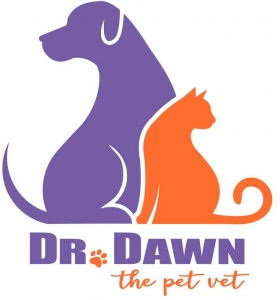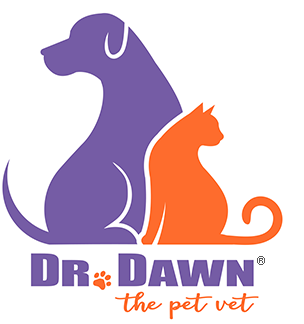There have been several articles in the last few months, discussing the concern veterinarians have with increased cases of heart disease and the possible link to grain free and novel protein diets. Hopefully this info will clarify the confusion and contradictions in the media, and guide you in diet choices for your dogs.
The most important thing to consider is the advice you get from a #veterinarian. Not a pet store employee, or your neighbor, or friend of a friend’s #breeder, or Facebook. This is a subject which, like no other, is discussed and advice is given, with authority, by those who shouldn’t be dispensing advice. #ets seems to be suffering due to this advice.
To be clear, in no way am I intending to make pet parents feel guilty for their choices. Those that DO need to feel guilty are those who make, aggressively market, sell and profit from these diets without proper due diligence and quality control of their products. Their intent is to convince them that they should buy their products.. often that their vets are wrong, and that vets are making profit on food that is not good for their pets. They are wrong. Ps… veterinarians do not make profit on diets. We are not motivated for profit when recommending diets. We are motivated to treat and cure your pets, not to harm them.
Food allergies exist, but are less common than the public is led to believe. Typically allergies are to the main proteins in the diets. Grain #intolerances are extremely rare in dogs and cats.
The salesperson in the pet store does NOT know more than your vet. Your breeder does NOT know more than your vet. And, you and Google do NOT know more than your vet. Period. There- I’ve said it.
But, don’t take just my word for it – take the advice of a veterinary nutritionist. There aren’t many of them, but they are the gold standard on giving dietary advice. I am referencing their words, from recent lectures I have personally attended, and literature that they are providing to professionals, in addition to specific public forums, with links below.
How did we get here?
https://slate.com/technology/2019/01/stop-buying-grain-free-food-for-your-pets.html

Slate magazine discussed the shifting consumer demands in the pet food industry. There has been an exponential growth of pet food options available to pet parents. Many of us see our pet as a member of the family. This has led to an explosion of new, often expensive, diets targeted at consumers wanting to do the best they can by their pet, including their diet. This deluge of options can be overwhelming. They also can be misguided, and based on the presumption that dogs and cats benefit from certain diet trends, fads, or preparations that address food sensitivities in people, but are rarely seen in pets. But, what is important to understand is that, because it may be beneficial in people, it doesn’t mean it is in dogs. Options include vegan, vegetarian, organic, raw, ketogenic, all-natural, and grain-free. Novel protein and grain-free based diets are marketed to address food allergies in dogs.
Grain free food sales alone account for 44% of pet specialty food store sales. Slate said it well when they noted that veterinarians see this statistic as something of a head-scratcher, “who see the movement as a solution in search of a problem.” Not only is there no reliable evidence that grains are harmful to dogs or cats, but it seems that the absence of grains is causing harm.
In July, 2018, the FDA began studying the link between these diets and a potentially lethal heart condition called dilated cardiomyopathy (DCM). It has been showing up in far greater numbers, in breeds not predisposed to it. Pet food marketing has sadly, in this instance, outpaced the science.
A summary of what is known, to address the common misconceptions in the media:
- It is not just grain-free diets that are linked with this disease. Small, boutique companies with exotic ingredient diets (BEG) use other ingredients to replace grains. Lentils and chickpeas are commonly used. The quality control is not uniform for all pet food manufacturers, so there are issues with nutritional content and balance that the consumer is not often aware of.
- Low taurine levels have been implicated in playing a role in DCM, but most dogs with DCM do NOT have low taurine. Thus, supplementing it will not solve the problem. And, there is lack of quality control in supplements as well, thus another reason not to supplement.
- Raw diets, and homemade diets are not safe alternatives. It is very difficult to formulate a balanced raw or homemade diet, and it can increase your dog’s risk of other health problems, including but not limited to DCM. Again, these board certified veterinarians can advise you on a homemade diet if it is , in fact, recommended by your doctor for a preexisting condition.
DCM seems to occur in three groups of dogs.
- #Diet-associated DCM with normal blood taurine levels. Can be seen in dogs not eating a BEG diet, but are seen in much increased numbers in dogs eating BEG diets. This is the most common scenario. The culprit in these diets may be a toxin, as opposed to a lack of a nutrient. Until the cause is elucidated, best to avoid these diets.
- Primary DCM in breeds predisposed, and unrelated to diet. This is a genetic-based disease seen in Doberman Pinschers, Boxers, Irish Wolfhounds and Great Danes.
- Least common, are DCM afflicted dogs due to taurine deficient diets, seen in any breed or mixed breed. Note that cats were more commonly afflicted with this disease, prior to learning that taurine inclusion in diets could prevent it. Thus, #commercial cats diets mainly have taurine for this reason, significantly lessening the prevalence.
If your dog is diagnosed with DCM, and eating a BEG diet, change it, check for taurine levels, and treat with appropriate heart medications and procedures recommended by your veterinarian. They may want to run a blood test called NT-proBNP, which can indicate heart enlargement. Other dogs in the household eating the diet should also be tested, even if they are not showing symptoms. If caught early, the heart disease can improve, but it can take a while. Testing may include an echocardiogram, or at least an EKG, radiographs. Symptoms of heart disease may be weakness, lack of energy or interest in activities or eating, shortness of breath, tiring early in exercise, coughing or fainting.
Dr. Dawn
Please share and subscribe here




